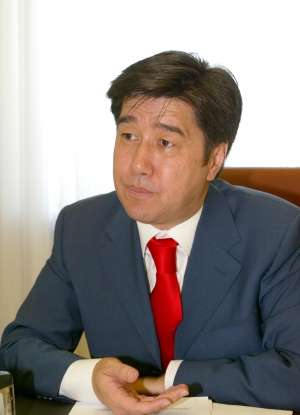In the Plan of the Nation 100 Concrete Steps on the implementation of five institutional reforms, President Nursultan Nazarbayev primarily outlined the problems of the formation of modern professional and independent state apparatus.
The efficiency of a response that the state can give to the global, regional and country challenges largely depends on the effectiveness of the state apparatus. The increasing understanding in the world is that sustainable development of countries and the welfare of peoples, along with the “invisible hand” of the market, depends on the quality of the “visible hand” of the state.
I want to note that the head of state has attached great importance to the improvement of the state apparatus since the early days of independence. That is why international experts describing the evolution of civil service in Kazakhstan note the logical continuity and consistency of reforms in this area. At the same time, they emphasise that a key factor in the success of the reform is the political will of Nursultan Nazarbayev. Thus, during the second half of the 1990s Kazakhstan was the first among the Commonwealth of Independent States (CIS) countries that adopted a special law and implemented a system of mandatory open competition to enter civil service and separated civil servants into political and administrative layers, as well as created a special authorised body. As a result, the World Bank recognised Kazakhstan as a leader of reforms among the CIS countries.
The status of a leader commits to go ahead. Based on the analysis of the problems of our civil service and modern global trends, Nazarbayev approved the Concept of a new model of public service in 2011. Its implementation allowed Kazakhstan, once again the first in the CIS, to create a Corps A management layer, strengthen the role of personnel management services and start work on the development of tests based on competence.
This stage of reforms also received high international evaluation. In particular, the report of the Organisation for Economic Co-operation and Development (OECD) Anti-Corruption Network in October 2014 recognised Kazakhstan as a successful example of the promotion of professionalism and meritocracy in the civil service. It is no wonder that our experience is actively studied in the region. In this regard, United Nations (UN) Deputy Secretary-General Helen Clark noted in her letter to Nursultan Nazarbayev that “the establishment of Public Service Regional Hub in Astana and its success became possible because countries like Kazakhstan are ready to share its experience in carrying out reforms.” By the way, more information on the regional hub can be found at the following link, www.regionalhub.org.
Thus, continuity, progressiveness and sequence of reforms prepared the way for the transition to a career model. The tasks set by the President regarding institutional reforms on the formation of a modern, professional and autonomous state apparatus and the transition to a career model, in turn, have become a new qualitative stage of civil service development in Kazakhstan.
On the basis of these tasks, the National Commission on Modernisation developed proposals on the implementation of the first 15 steps of the Plan of the Nation.
The representatives of the Kazakhstan National Academy of Natural Science (KazNANS) actively participate in the activities of the relevant working group. A number of the academy members’ recommendations have already been approved by the national commission. These include legislative separation of powers between political officials and senior executives of the administrative civil service, including executive secretaries and heads of the departments. It should enhance the effectiveness of management in the government agencies. Also, there are proposals to reduce the gap in wages between the upper and lower positions of the administrative civil service.
For a variety of historical reasons, in Kazakhstan as well as in other countries in the region, the practice in the field of public administration and civil service is ahead of science. In this regard, Nursultan Nazarbayev set a task to actively develop the Kazakh scientific school of public administration and civil service. This trend was identified as one of the priorities by KazNANS. In addition, there is an expected signing of a memorandum among KazNANS, the Regional Hub and the Academy of Public Administration under the President of Kazakhstan on promoting the development of the national scientific schools. The hub already has partnerships with leading educational organisations and international institutions.
I believe the implementation of these and other measures will make a significant contribution to the quality of implementation of the Plan of the Nation and will enhance public confidence towards the state apparatus.
The authoris chairman of the Committee of the Public Service Regional Hub in Astana and a member of the Kazakhstan National Academy of Natural Sciences Presidium.

